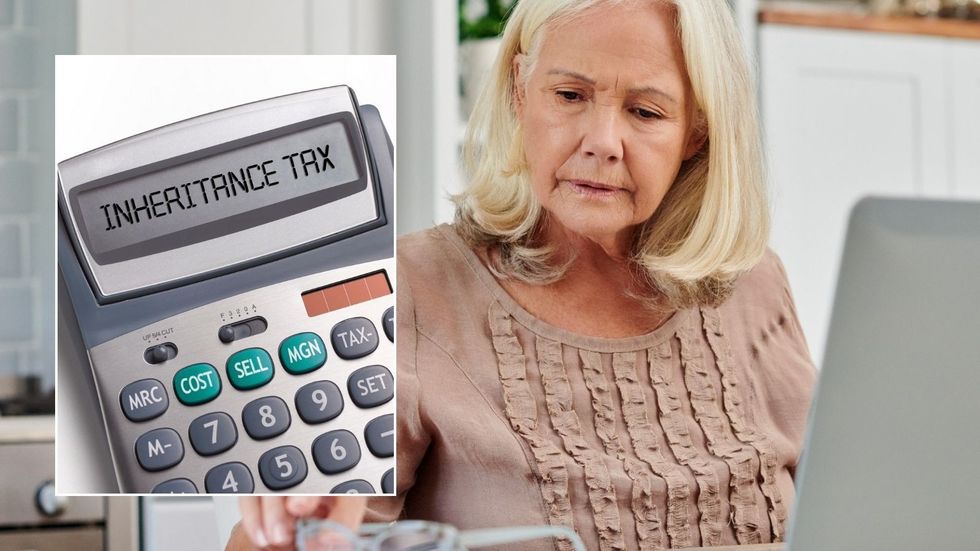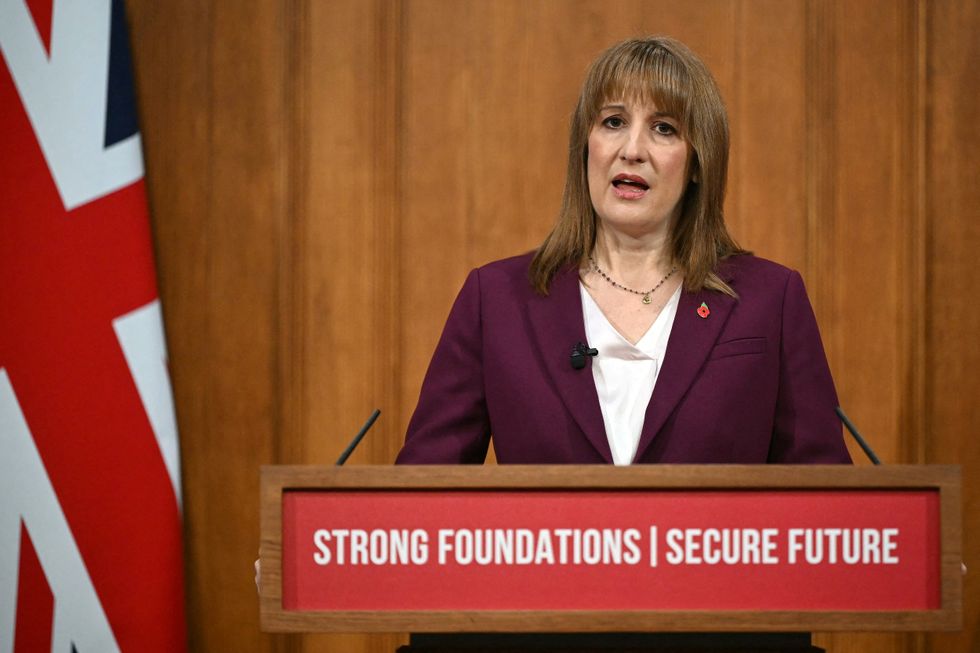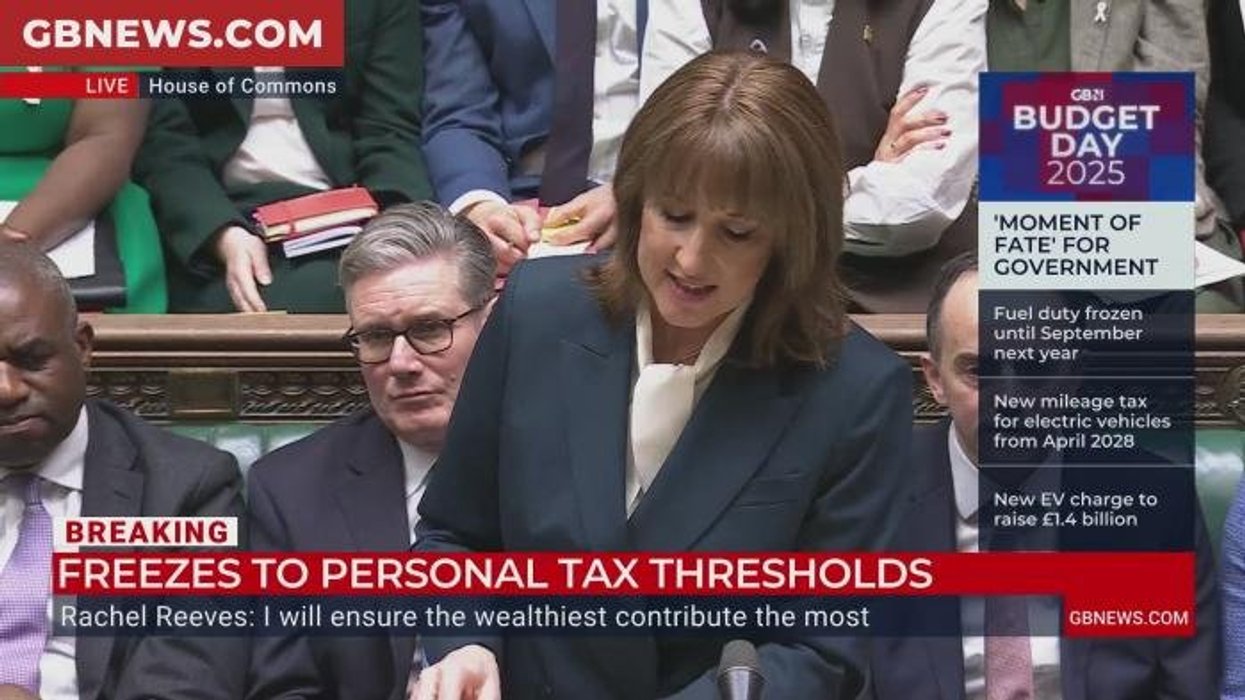Inheritance tax threat to pensions deepens as Budget confirms NEW rule change

Treasury officials have introduced a change to how inheritance tax will be handled on pension funds.
Don't Miss
Most Read
The Budget has quietly altered the rules on inheritance tax for pensions, and analysts say the fallout could catch families by surprise.
The new measure may seem minor, but it could shape how easily pension funds are passed on to loved ones.
Budget documents confirm a small change to the administrative process attached to bringing pensions into inheritance tax (IHT) from April 2027.
The update will allow the people responsible for sorting out an estate to ask pension providers to hold back 50 per cent of someone’s retirement savings so that any tax due can be paid.
TRENDING
Stories
Videos
Your Say
The change, set out in the Budget papers, links to the new rules coming in from April 2027, when unused pension funds will start being counted for inheritance tax purposes.
Under the revised system, estate administrators will be able to tell a pension provider to keep back half of the pension for up to 15 months, rather than paying it straight to beneficiaries. This is to make sure enough money is available to cover the inheritance tax bill.
The adjustment follows complaints from the pensions industry, which warned that the previous rules were unclear and could have created major costs, delays and stress for families dealing with estates after a death.
 Pension experts report that savers are already modifying their financial behaviour ahead of the 2027 deadline | GETTY
Pension experts report that savers are already modifying their financial behaviour ahead of the 2027 deadline | GETTY The pensions industry had pushed back strongly against the original proposals, warning they would create unnecessary complications and financial pressure for families inheriting pension savings.
Their main concern was that estate administrators could struggle to recover inheritance tax if a beneficiary withdrew the full pension before the tax bill was settled.
Under the old plan, only the beneficiary - not the estate administrator - could instruct the pension provider to pay the tax directly from the pension fund.
This meant administrators could be forced to pay the tax from the rest of the estate to avoid interest charges building up, and then chase beneficiaries to recover the money afterwards.
LATEST DEVELOPMENTS

Chancellor Rachel Reeves announced the Autumn Budget on November 26
| REUTERSThe revised system removes that risk by giving administrators the power to pause half of a pension pot until the tax position is finalised, preventing the full amount being paid out prematurely.
This adjustment aims to prevent situations where administrators would be forced to settle pension-related inheritance tax from other estate resources, potentially facing challenges in recovering these amounts whilst accruing late payment charges.
The fifteen-month retention period provides administrators with sufficient time to calculate and settle tax obligations without relying on beneficiary cooperation.
Rachel Vahey, who leads public policy at AJ Bell, expressed disappointment with the government's approach, stating that whilst the modification provides estate administrators with "a little bit of flexibility", it fails to address fundamental problems with the new system.
Ms Vahey said: "But although this will give the personal representatives the power to hold back 50 per cent of the pension benefit to pay HMRC the IHT due, it doesn't get away from the hard cold truth that bringing pensions into the net of IHT is going to lead to some administrative nightmares for those responsible for winding up the affairs of loved ones."
She argued that officials should have pursued alternative methods for taxing retirement benefits upon death, noting that "most of the pension industry have spent the last year urging HMRC to do" exactly that.
Ms Vahey criticised HMRC for persisting with what she termed "the hard administrative path, rather than thinking about the grieving families who will sadly get caught up in this administrative torment at the time they are most vulnerable."
The Treasury's Budget papers have provided additional clarity regarding estate administrators' responsibilities, confirming they will not face liability for inheritance tax on retirement funds that emerge after tax settlements have been completed.

The details will provide estate administrators and pension providers with the operational guidance needed to implement the new inheritance tax regime when it takes effect in April 2027
| GETTYThis provision offers protection for administrators who might otherwise face retrospective tax demands when previously unknown pension arrangements come to light following estate finalisation.
The forthcoming Finance Bill, scheduled for release on Tuesday, will contain comprehensive guidance on inheritance tax liability for pension funds, including detailed calculation methods and payment procedures.
The legislation will specify which parties bear responsibility for pension-related inheritance tax and establish the framework for how these obligations should be discharged.
These technical details will provide estate administrators and pension providers with the operational guidance needed to implement the new inheritance tax regime when it takes effect in April 2027.
More From GB News











